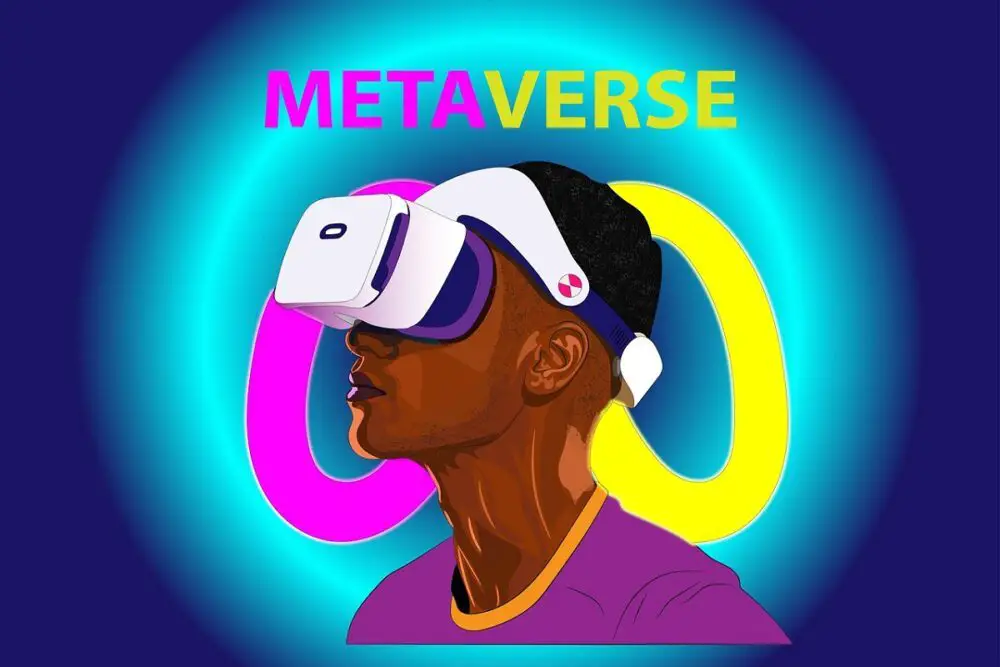With technology constantly evolving to propel people into the next generation, the word “metaverse” is being heard more often, especially with Facebook’s recent name change to Meta.
Although it is not something new for highly technical people immersed in emerging technologies, the majority of the world’s population has not yet heard of it or does not know exactly what it is. A Consumer Electronics Show (CES) in Las Vegas held earlier this year highlights a future that lies within the metaverse.
So what exactly is the metaverse of the people who are actually making it happen?
“The metaverse is like the internet. It is a destination for people to share and exchange content on any subject. And the only difference between the internet today and the metaverse is that the metaverse generally refers to spatial content, so the experiences that I have in virtual reality where I’m fully immersed or mixed reality where we mix artificial content with the real world,” said Chris Stavros, CEO of MakeSea, a multi-platform AR/VR content management and collaboration firm.
“It’s really like this layer on top of the Internet. It could be translated to a 3D virtual space where you are hanging out with friends. [and] it could translate into more experiences, like playing a game together that is truly immersive. But it could also be as if we had dinner and they [looking] to my wife who is next to me in the physical world, but also to my friend who is on the other side of the world, sitting with us and having a conversation together”, added Artur Souza, vice president of engineering at Meta. .
According to the previous explanations, the metaverse is a virtual world made up of virtual and augmented realities using the Internet. Through this virtual world, infinite social and commercial interactions and relationships become possible.
Although mostly related to the gaming world, the metaverse presents unique avenues for all types of companies in different types of industries to really engage with their consumers and for consumers to connect with each other and build meaningful relationships.
“I think the metaverse opens up a lot of opportunities because now brands can create a much richer customer experience. Now, it’s immersive. Before it was flat and one-dimensional. Now, you’ll be able to do it in an incredibly rich 3D way, and you’ll have the opportunity to merge what happens in the digital world with what consumers experience in the real world,” experiential reality (XR) platform Omniscape CMO Warren White explained. .
However, the metaverse is just getting started and there are challenges hindering its rapid growth and development. No doubt, the current Internet bandwidth is one of the things that needs to be improved to make it work smoothly. Another is the device itself through which the metaverse can be accessed.
But another problem is that there is controversy about what kind of database can handle the huge amount of data required for the metaverse to be used to support it. However, for many, blockchain technology is the answer.
“Designing glasses that can actually have the battery power to go through the experiences and last through all of this is challenging — miniaturizing processors, computation and all that. I think we’re going to have some progress. Connectivity is important, so 5G or red helps a lot. There is more than can be done. We will need more bandwidth. We are going to need, for example, blockchains that can efficiently support a volume of transactions. I think the biggest hurdles are definitely on the technology side. The technology needs to evolve,” Souza said.
As it evolves, Souza intends for blockchain technology to expand and improve in order to efficiently handle global data needs. BSV is currently the largest public blockchain with unlimited scalability.
Today, the BSV blockchain has been scaled to handle 4 GB data blocks and throughput of up to 50,000 transactions per second (tps) at fees of small fractions of a cent per transaction. And this is only the beginning. As BSV scales, block size and throughput will only increase until it reaches terabyte-sized blocks and billions of tps at rates that cost next to nothing.
“When we look at all the different types of protocols for different types of blockchains, we make a business and technical decision. And honestly, BSV, it was super fast, super scalable, super cheap. I mean, when they try to mint an NFT or something like, say, OpenSea, and they spend a couple hundred bucks and have to wait, versus BSV, where they know, it’s .000 [of] a cent. It’s like, ‘Okay, why would I even bother?’” Omniscape founder and CEO Robert Rice revealed.
The BSV blockchain has also restored the original Bitcoin protocol, making it the most stable foundation on which developers can build any application. In addition to being scalable, stable, and efficient, it is also inherently secure and private.
“One of the reasons that blockchain is such an exciting technology for the metaverse is that it is, by definition, an open, public platform, so applications that are built on top of blockchain naturally come with the data security and privacy in mind. So if we envision the metaverse as an open environment where I interact with many other avatars that I may not be familiar with, it’s important for me to know that my data is secure and private,” Owen Vaughan, nChain’s director of research, said.
Although still in its early stages of release, the metaverse is definitely something people can look forward to. What was seen in science fiction movies may become reality in the very near future.
Subscribe to our latest newsletter
To read our exclusive content, sign up now. $5/month, $50/year
Categories: Technology
Source: vtt.edu.vn
